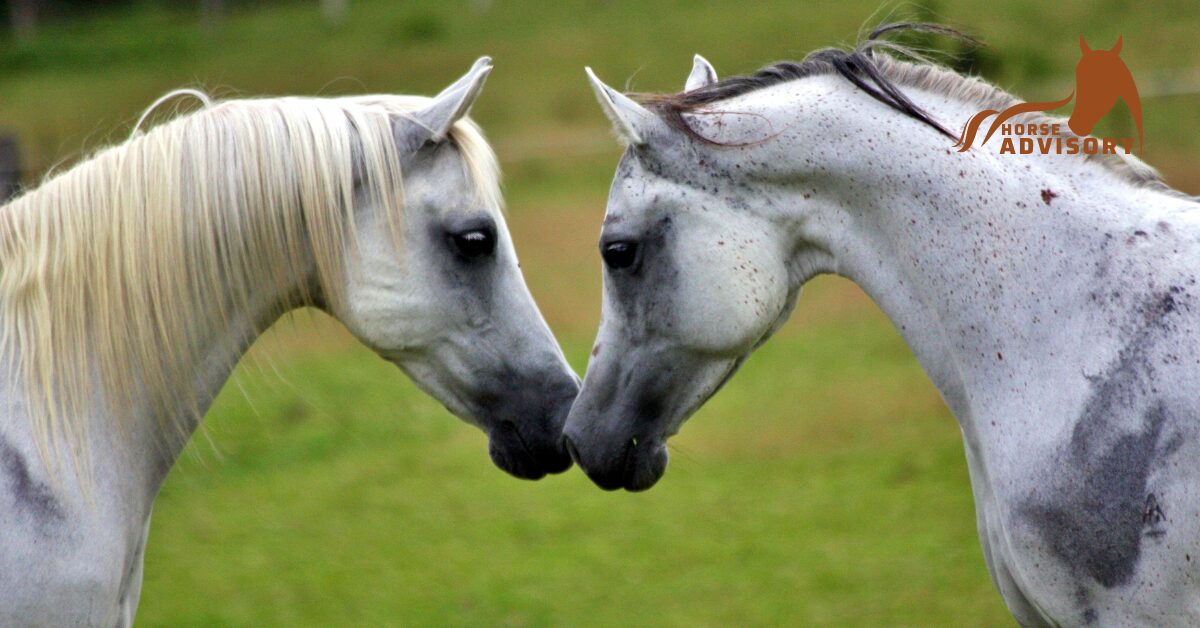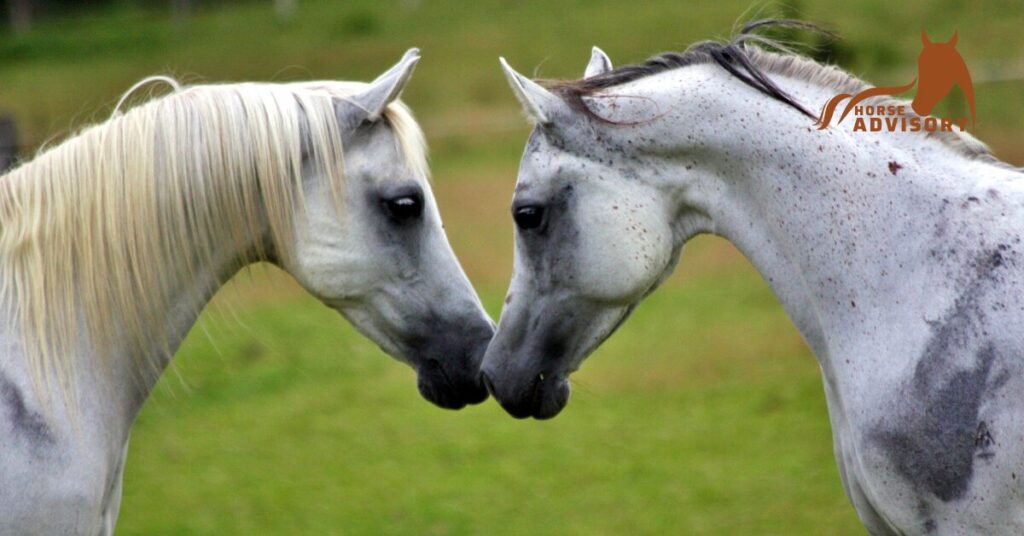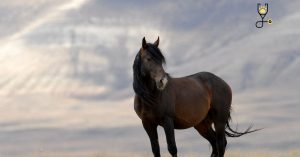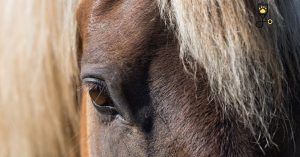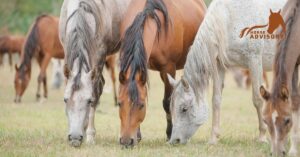Arabian horses are celebrated for their beauty, endurance, and intelligence, which have made them a favorite among equine enthusiasts worldwide. However, like all breeds, Arabian horses are subject to certain health issues that are influenced by genetics. Understanding the role of genetics in these health matters is crucial for enhancing the well-being and longevity of these magnificent animals. In this blog post, we will explore how genetics affect common health issues in Arabian horses, the importance of genetic testing, and how breeders can utilize this information to improve breeding programs.
Influence of Genetics on Common Health Issues
Genetics plays a significant role in the health of Arabian horses, influencing both their strengths and vulnerabilities. Certain genetic disorders are more prevalent in Arabians due to their relatively pure bloodlines. Notable genetic disorders include:
1. Severe Combined Immunodeficiency (SCID):
Severe Combined Immunodeficiency (SCID) is a genetic disorder that affects the immune system of Arabian foals. It results in a severely compromised immune system, leaving affected foals unable to fight off infections effectively.
SCID is an autosomal recessive trait, meaning that both parents must carry the SCID gene for their foals to be affected. A foal must inherit two copies of the defective gene (one from each parent) to develop the condition. Horses that carry only one copy of the gene are carriers and do not show symptoms but can pass the gene to their offspring.
Foals with SCID are born with a normal appearance but develop symptoms shortly after birth, including:
- Persistent infections, such as respiratory or gastrointestinal infections.
- Failure to thrive, with poor weight gain and overall weakness.
- Frequent or severe illness due to an inability to mount an effective immune response. Management and Prevention:
- Genetic Testing: To prevent SCID, breeders can use genetic testing to identify carriers and avoid breeding them together.
- Screening: Foals should be tested for SCID before breeding to ensure that the genetic defect is not passed on to future generations.
- Selective Breeding: Breeding programs should focus on using horses that are genetically clear of SCID to reduce the prevalence of the disorder.
2. Lavender Foal Syndrome (LFS):
Lavender Foal Syndrome (LFS), also known as Coat Color Dilution Lethal, is a genetic disorder that affects the nervous system of foals. It is characterized by a distinctive lavender-colored coat at birth and severe neurological impairments.
LFS is an autosomal recessive trait. Both parents must be carriers of the LFS gene for their foals to be affected. A foal must inherit two copies of the defective gene (one from each parent) to show symptoms.
Foals with LFS exhibit severe neurological issues and typically have:
- A unique lavender-colored coat, which is a hallmark of the disorder.
- Significant problems with coordination and balance, including difficulty standing and walking.
- Severe neurological impairments that can lead to seizures or other life-threatening complications. Prognosis and Management:
- Short Lifespan: Unfortunately, foals affected by LFS often do not survive beyond a few days or weeks due to the severity of the neurological issues.
- Genetic Testing: Breeders should perform genetic testing to identify carriers of the LFS gene and avoid breeding carrier horses together.
- Awareness: Raising awareness about LFS and its genetic basis helps breeders make informed decisions and reduce the risk of this condition.
3. Cerebellar Abiotrophy (CA):
Cerebellar Abiotrophy (CA) is a genetic disorder that affects the brain, particularly the cerebellum, which is responsible for coordination and balance. Affected horses experience significant motor control issues.
CA is an autosomal recessive trait, meaning both parents must carry the CA gene for their foals to be affected. A foal must inherit two copies of the defective gene to develop the condition.
Horses with CA typically show symptoms related to coordination and balance, including:
- Ataxia (lack of coordination) and difficulty with movement.
- Tremors or shaking, particularly when trying to walk or perform other physical activities.
- Difficulty standing or maintaining balance, leading to a significantly compromised quality of life. Management and Considerations:
- Quality of Life: Affected horses are often euthanized due to the severe impact on their quality of life and inability to perform normal activities.
- Genetic Testing: Genetic testing is essential for identifying carriers of CA and preventing the breeding of horses that may pass on the disorder.
- Breeding Practices: Implementing selective breeding practices to avoid carriers can help reduce the incidence of CA in the breed.
Importance of Genetic Testing
Genetic testing has become an invaluable tool for breeders and owners to identify carriers of these and other genetic disorders. By understanding the genetic makeup of their horses, breeders can make informed decisions that reduce the incidence of genetic diseases in future generations. Genetic testing allows for:
Early Detection
Genetic testing allows for the early identification of carriers for various genetic disorders before they are bred. This proactive approach helps prevent the birth of foals with hereditary diseases. By understanding which horses carry certain genes, breeders can avoid pairing carriers, thus reducing the chances of producing affected offspring.
Selective Breeding
Selective breeding is enhanced significantly through genetic testing. When breeders know which horses are carriers for specific genetic conditions, they can make more informed decisions about which horses to mate. This careful selection helps avoid combining two carriers of the same disorder, which could lead to a higher incidence of genetic diseases in the offspring.
Breeding Program Enhancement
Genetic testing not only helps in managing health risks but also supports the preservation of desirable traits in horses. For Arabian horses, known for their unique qualities, genetic testing ensures that breeders can maintain these traits while mitigating health risks. By understanding the genetic makeup of their horses, breeders can design breeding programs that enhance and preserve the breed’s desirable characteristics while avoiding the spread of genetic disorders.
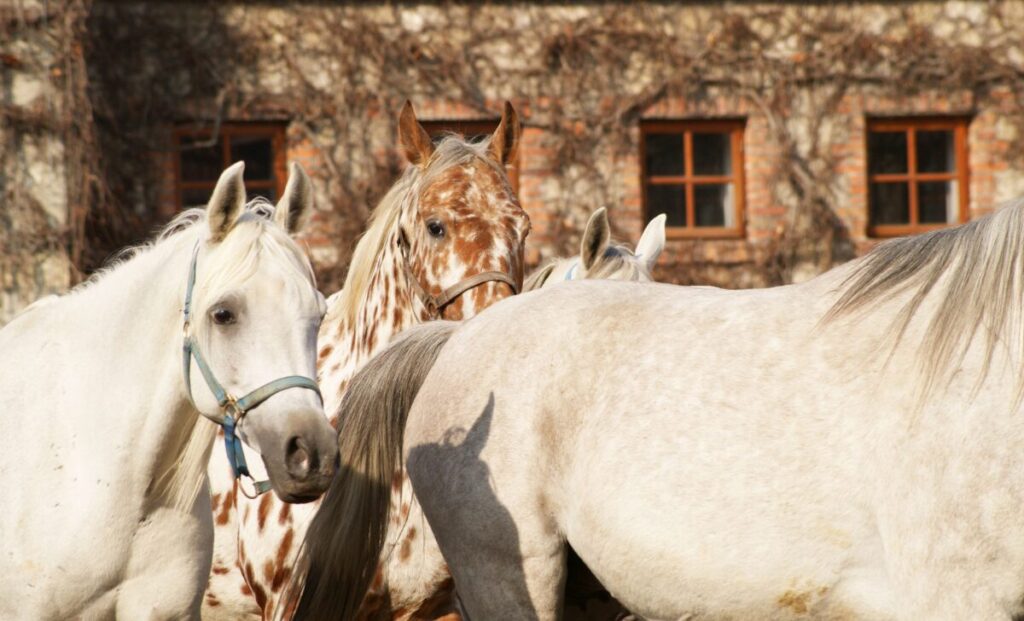
Managing and Preventing Genetic Disorders
Breeding strategies aimed at managing and preventing genetic disorders involve careful selection and genetic counseling. Here are some steps breeders can take:
Pedigree Analysis
Pedigree analysis involves examining the family tree of both the mare and the stallion to identify potential genetic risks. This process helps breeders understand the hereditary patterns and likelihood of genetic disorders within a lineage. By tracing the ancestry of horses, breeders can spot any recurring disorders or traits and assess whether these are present in both the sire and dam.
For instance, if both parents have a history of a specific genetic disorder in their pedigrees, the risk of their offspring inheriting that disorder increases. Pedigree analysis can also highlight the presence of carriers who may not show symptoms but could pass on genetic conditions to their progeny. This step is essential for making informed breeding choices that minimize the risk of genetic disorders.
Genetic Counseling
Genetic counseling involves working with a geneticist or veterinarian specializing in equine genetics to make well-informed breeding decisions. Genetic counselors use their expertise to interpret genetic test results, provide advice on managing and reducing the risk of genetic disorders, and help breeders understand the implications of various genetic combinations.
They can offer guidance on selecting breeding pairs based on their genetic profiles and help design breeding programs that enhance genetic diversity while minimizing the risk of hereditary diseases. This expert advice is crucial for developing a breeding strategy that balances health, performance, and breed standards.
Responsible Breeding Practices
Responsible breeding practices emphasize the health and well-being of horses over purely physical traits or performance capabilities. This approach involves selecting breeding pairs not just for their conformation, speed, or other desirable characteristics but also for their genetic health. Breeders should prioritize horses with robust health profiles and low risks for genetic disorders, even if it means making some compromises on physical traits or performance records.
By focusing on the overall health and genetic diversity of the breeding population, breeders can reduce the prevalence of inherited conditions. Additionally, responsible breeding practices include educating breeders about genetic disorders, promoting the use of genetic testing, and fostering a culture of transparency and accountability in breeding decisions.
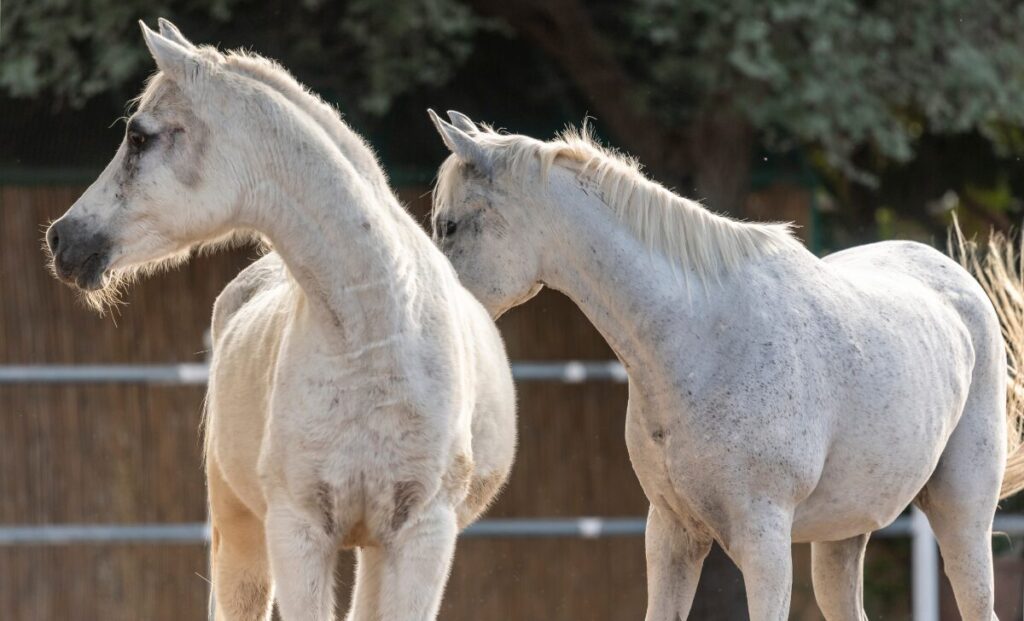
Benefits of Understanding Genetics for Breeding Programs
A comprehensive understanding of genetics not only benefits individual horses but also enhances the overall quality and reputation of breeding programs. Benefits include:
Improved Health and Longevity
A deep understanding of genetics allows breeders to significantly enhance the health and longevity of horses. By identifying and avoiding the transmission of harmful genetic disorders, breeders can reduce the incidence of diseases that might otherwise affect the well-being of horses.
For example, genetic testing can reveal carriers of conditions such as Juvenile Idiopathic Epilepsy or Severe Combined Immunodeficiency, allowing breeders to make informed decisions that prevent these disorders from appearing in offspring.
As a result, horses are less likely to suffer from hereditary health issues, leading to longer, healthier lives. Improved health not only benefits the horses themselves but also reduces veterinary costs and improves the overall quality of life for these animals.
Enhanced Performance
Healthy horses are more likely to excel in various disciplines, whether in competitive settings like show rings and racetracks or as versatile working animals. When genetic disorders are managed effectively, horses are less likely to experience health problems that could impede their performance. For instance, conditions like exercise-induced pulmonary hemorrhage or genetic predispositions that affect stamina or joint health can be minimized through careful genetic management.
As a result, horses can reach their full potential in their respective fields, demonstrating optimal performance, endurance, and competitive edge. Breeding programs that focus on both genetic health and performance traits can produce horses that not only excel in their disciplines but also maintain their performance levels throughout their careers.
Preservation of the Breed
A thorough understanding of genetics plays a crucial role in preserving the unique characteristics of breeds, such as Arabian horses. By focusing on genetic health, breeders can ensure that these distinctive traits—such as conformation, temperament, and performance capabilities—are maintained and passed on to future generations. Effective genetic management helps avoid the loss of valuable genetic diversity and prevents the inadvertent propagation of detrimental traits.
This approach contributes to the long-term sustainability of the breed, ensuring that its unique attributes are preserved while minimizing the risk of genetic disorders. Additionally, by maintaining high standards of genetic health, breeders can enhance the reputation of the breed, attracting enthusiasts and preserving the breed’s heritage for future generations.
Read More: How to Use Genetic Testing in Arabian Horse Breeding
Conclusion
The role of genetics in Arabian horse health cannot be overstated. By embracing genetic testing and responsible breeding practices, breeders can significantly improve the health and welfare of Arabian horses. Understanding the genetic landscape of these magnificent animals not only aids in preventing hereditary diseases but also strengthens the breed as a whole. For those passionate about Arabian horses, investing in genetic knowledge is a step toward safeguarding their legacy for generations to come.
